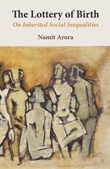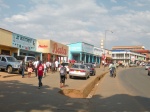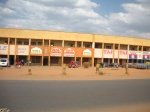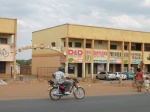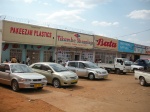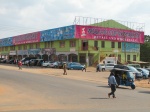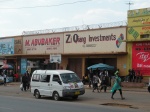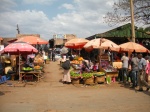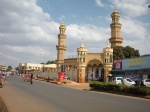Lilongwe, Malawi
(Notes from a journey to Mozambique, Malawi, and Zambia, Sep/Oct 2015.)
Perhaps nowhere in Malawi is the recent influx of Chinese money more visible than in the capital, Lilongwe (pop. 670,000), with its several new malls and shopping plazas and gleaming new Parliament building lining the freshly paved avenues in the up-and-coming parts of town. And though most Malawians are poor, there are those who can afford to shop at the posh boutiques and linger in the upscale bars and eateries. The older parts of town, where most residents shop, are a bit more plain. Here both Chinese and Indian names are conspicuous on many of the larger shops. Indians have a long presence in Malawi, since they came in the service of the British in the early 20th century.
In our search for a live musical performance, we were directed to an outdoor venue where the Malawian artist, Janta Divorce, was warming up the crowd for another act, singing and dancing, goofing around with audience members who joined him on the steps, giving the concert a playful, communal, impromptu feel. When Janta Divorce finished his set, he came over and said hello and shook my hand. We got to hear several bands perform during the few days we were in Lilongwe. Janta Divorce had done only his original music, but the other bands mostly covered a mix of classic R&B, reggae, and a bit of rock, all of it transposed into their Malawian style. Relaxing with a small crowd on the lawn of Four Season’s Mall, eating pizza, and listening to local musicians was a perfect way to spend a Sunday afternoon.
In the center of Lilongwe is the Lingadzi Namilomba Forest Reserve, a broad path of forest covering both sides of the Namanthanga River, where deer, crocodiles, and hyenas still freely roam. Footpaths guide human visitors, making the area a mini-wildlife park within the city. And within this you can find the Lilongwe Wildlife Center, which houses and cares for wild African animals who have been rescued by various agencies from zoos, circuses, and other places where they were found to be in danger. These animals are too damaged to be returned to the wild and will live out their lives here. Locals who tour the Center are given a healthy dose of education about the value of conservation, so we were surprised to hear some of the park guests—all of them relatively well heeled Malawians—argue with the guide when he urged them to refrain from eating bush meat. [—Usha Alexander, October 2015]
New Parliament building |
Presidential Way |
Early morning fish market |
|
City Mall |
Grocery store at City Mall |
Shopping center |
Shopping center (more) |
Kiyendra Band at Four |
Dzukani Band at Four |
Audience at Four |
Audience at Four |
Old town market |
Indian run stores (more) |
Indian country club |
Indian businesses |
Chinese businesses |
Chinese businesses |
Fruit / veggie stalls |
Local mosque |
Live band at a bar in Four |
Preshow jamming at a |
With the musician |
Posing at the concert |
Lilongwe nature |
Holds injured, orphaned, |
Blue Monkeys |
180 hectares in the |
Designed in collaboration with Vitalect, Inc. All rights reserved. |






